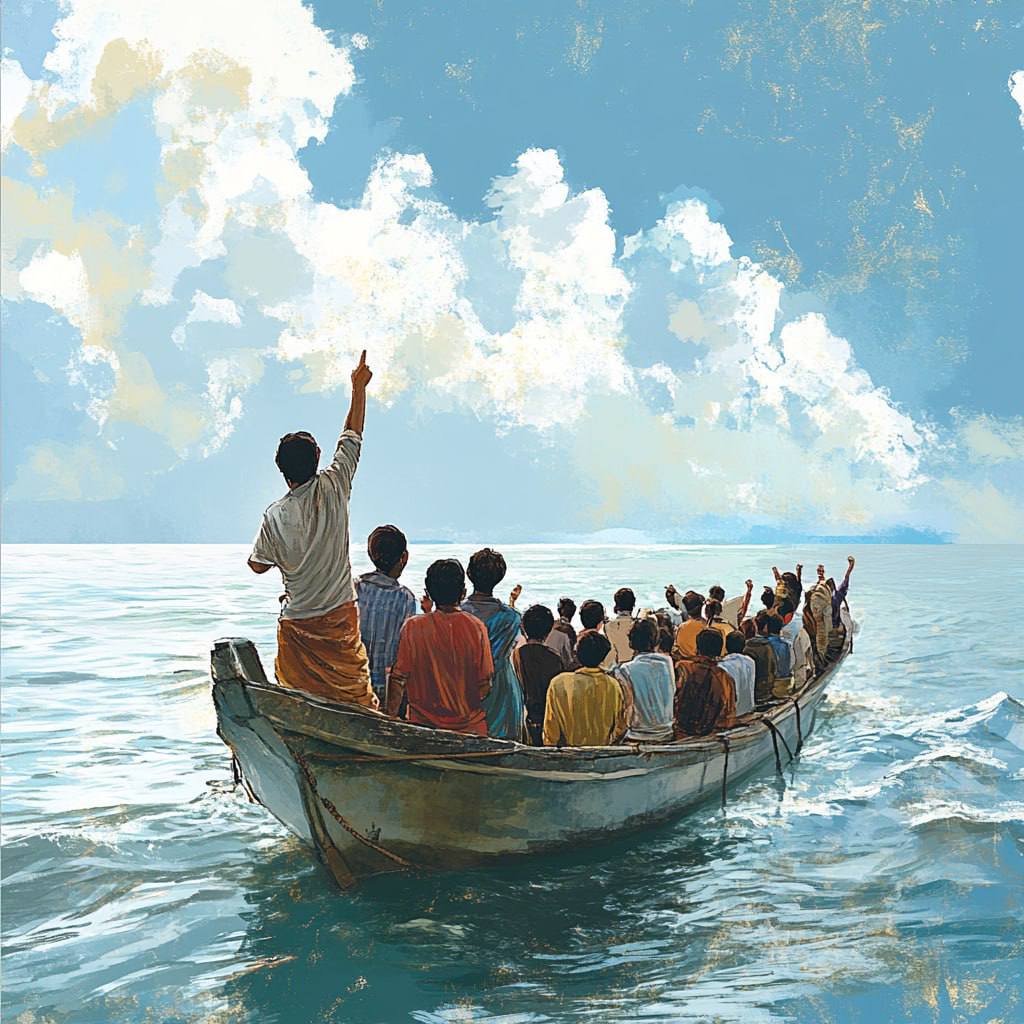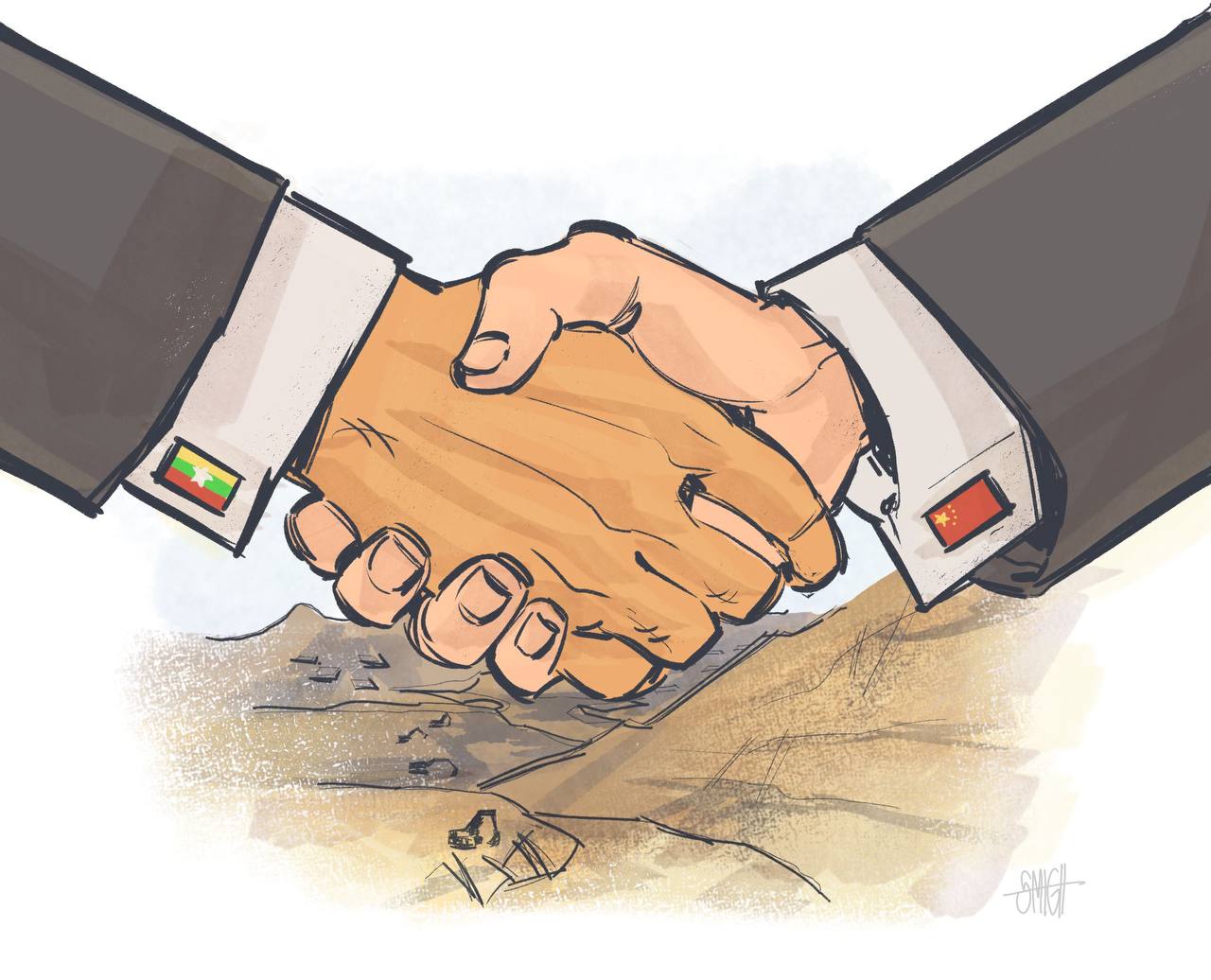
Since the dawn of civilization, humans have traversed lands in search of safety and opportunity. Today, this ancient instinct drives thousands of Myanmar citizens to leave their homeland, embarking on perilous journeys abroad to secure a livelihood.
Migrant workers who cross borders seeking employment are more than just statistics. For Myanmar's migrant workers, their stories are woven with hardship, hope, and the relentless pursuit of a better life.
A History Written in Hardship
The exodus of Myanmar's workforce began in the 1990s, spurred by political turmoil, economic stagnation, and a lack of jobs at home. Civil conflicts and military rule, coupled with economic mismanagement, forced many—especially those from rural and conflict-ridden areas—to seek work abroad. Thailand, just across the border and in need of cheap labor, quickly became the go-to destination for these desperate job seekers.
Myanmar migrant workers come from diverse backgrounds, but many belong to minority ethnic groups that have long faced discrimination and limited opportunities in their native regions. Often unskilled or semi-skilled, they take on low-wage jobs that local workers in host countries are unwilling to do.
A significant number of these workers are women, who find employment in domestic service or factories, where they face unique challenges, including gender-based discrimination and abuse.
Economic Pillars Abroad, Lifelines at Home
Despite their struggles, Myanmar's migrant workers are vital to the economies of their host countries. In Thailand, for instance, they are the backbone of key industries like agriculture, fisheries, and manufacturing. Their labor keeps production costs low, benefiting both local economies and consumers.
But it's not just their host countries that benefit. The remittances these workers send back to Myanmar are a lifeline for their families and a crucial part of the national economy. These funds, often used for basic needs like food, education, and healthcare, help elevate families out of poverty and support entire communities.
Facing Danger: The Dark Side of Migration
However, the journeys of migrant workers are often perilous. Many Myanmar workers rely on illegal networks to reach their destinations, exposing them to risks like human trafficking, exploitation, and abuse. Once they arrive, they face harsh working conditions, low wages, and little to no legal protection. Many find themselves in hazardous environments, with inadequate healthcare and safety measures.
Legal issues compound these challenges. In countries like Thailand, where many Myanmar workers are undocumented, they live in constant fear of arrest, detention, and deportation. Even those who are legally recognized face bureaucratic hurdles and discrimination, which limits their access to essential services and legal rights. Women are particularly vulnerable, facing additional risks of violence and exploitation both during their journey and in their workplaces.
Since the military coup in Myanmar in 2021, the situation has worsened. U Htoo Chit, Executive Director of the Thailand-based Education and Development Foundation, highlights the gravity of the situation:
"After the military introduced conscription laws and restrictions on young people working abroad, more and more migrants have been fleeing to Thailand. The number of illegal workers has doubled, possibly even tripled, in the past three years. The migrant worker crisis has been escalating."
The Role of Governments and NGOs
The governments of Myanmar and host countries, along with NGOs, play a crucial role in addressing the challenges faced by migrant workers. Myanmar's government has tried to regulate and protect its migrant workforce through agreements with neighboring countries, but enforcement is inconsistent. Host countries have also introduced measures to improve conditions for these workers, though significant challenges remain.
NGOs are critical in this landscape. They advocate for the rights of migrant workers, providing essential services like legal aid and healthcare. They also work to shine a light on the exploitation and abuse these workers face, pushing for stronger policies and better enforcement.
A Call to Action
Myanmar's migrant workers are not just laborers; they are the pillars of both their home and host countries' economies. Their contributions are immense, but they come at a high personal cost. Addressing the challenges they face requires a collective effort from governments, international organizations, and civil societies to ensure these workers can labor in safety and with dignity.
By strengthening legal protections, enforcing labor rights, and providing crucial support services, we can ensure that Myanmar's migrant workers are recognized and respected for the vital roles they play. Their journeys may be fraught with danger, but with the right support, they can build a future that is safer and more secure for themselves and their families.
Read More:
 Build Myanmar - MediaY3A
Build Myanmar - MediaY3A
 Build Myanmar - MediaY3A
Build Myanmar - MediaY3A
Build Myanmar-Media : Insights | Empowering Myanmar Youth, Culture, and Innovation
Build Myanmar-Media Insights brings you in-depth articles that cover the intersection of Myanmar’s rich culture, youth empowerment, and the latest developments in technology and business.
Sign up for Build Myanmar - Media
Myanmar's leading Media Brand focusing on rebuilding Myanmar. We cover emerging tech, youth development and market insights.
No spam. Unsubscribe anytime.
Sign up now to get the latest insights directly to your mailbox from the Myanmar's No.1 Tech and Business media source.
📅 New content every week, featuring stories that connect Myanmar’s heritage with its future.
📰 Explore more:
- Website: https://www.buildmyanmarmedia.com/
- Facebook: https://www.facebook.com/buildmyanmar
- YouTube: https://youtube.com/@buildmyanmarmedia
- Telegram: https://t.me/+6_0G6CLwrwMwZTIx
- Inquiry: info@buildmyanmar.org
#BuildMyanmarNews #DailyNewsMyanmar #MyanmarUpdates #MyanmarNews #BuildMyanmarMedia #MyanmarNews #GlobalNews #TechNewsMyanmar #BusinessNewsMyanmar #Updates #Insights #Media